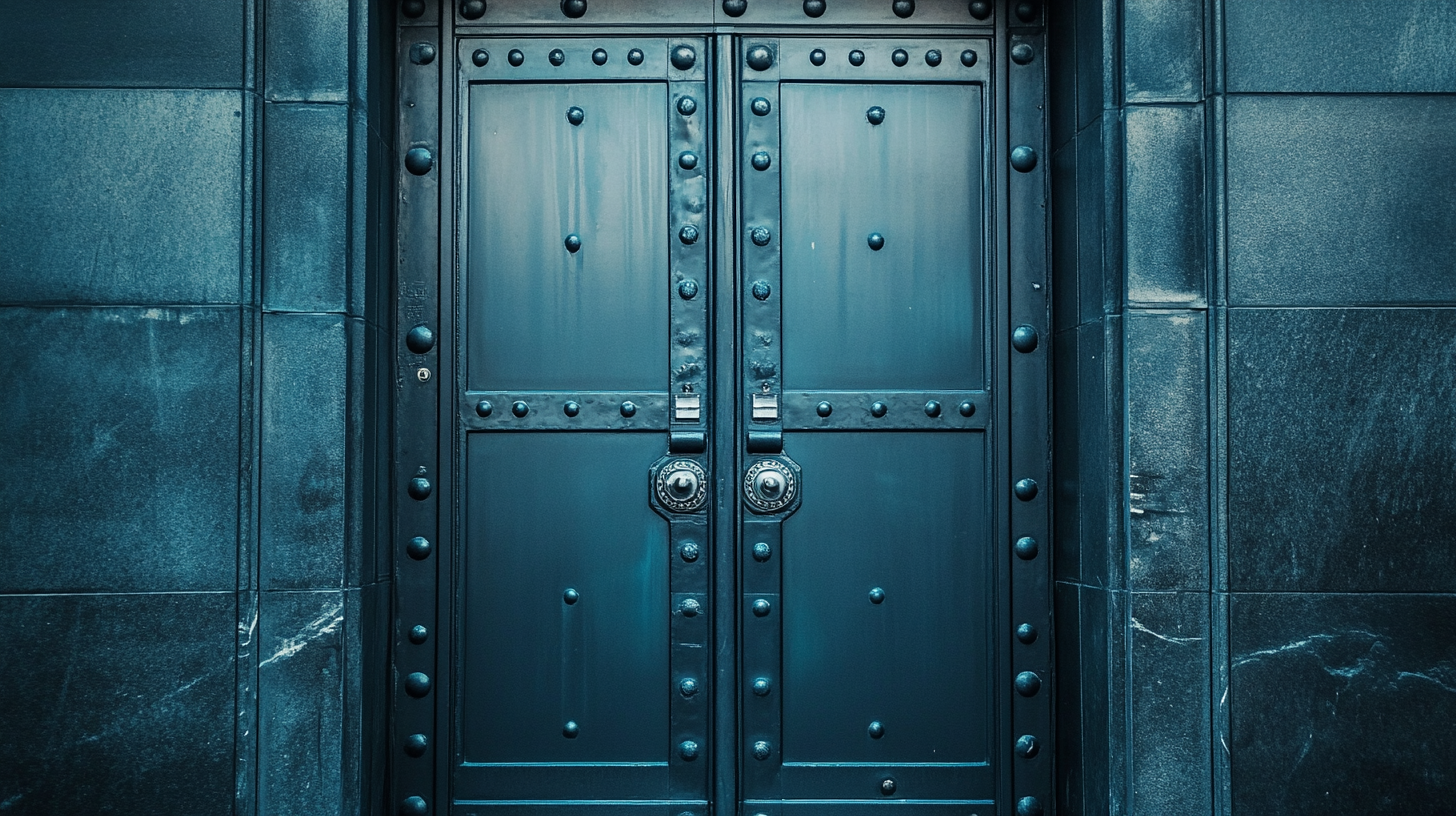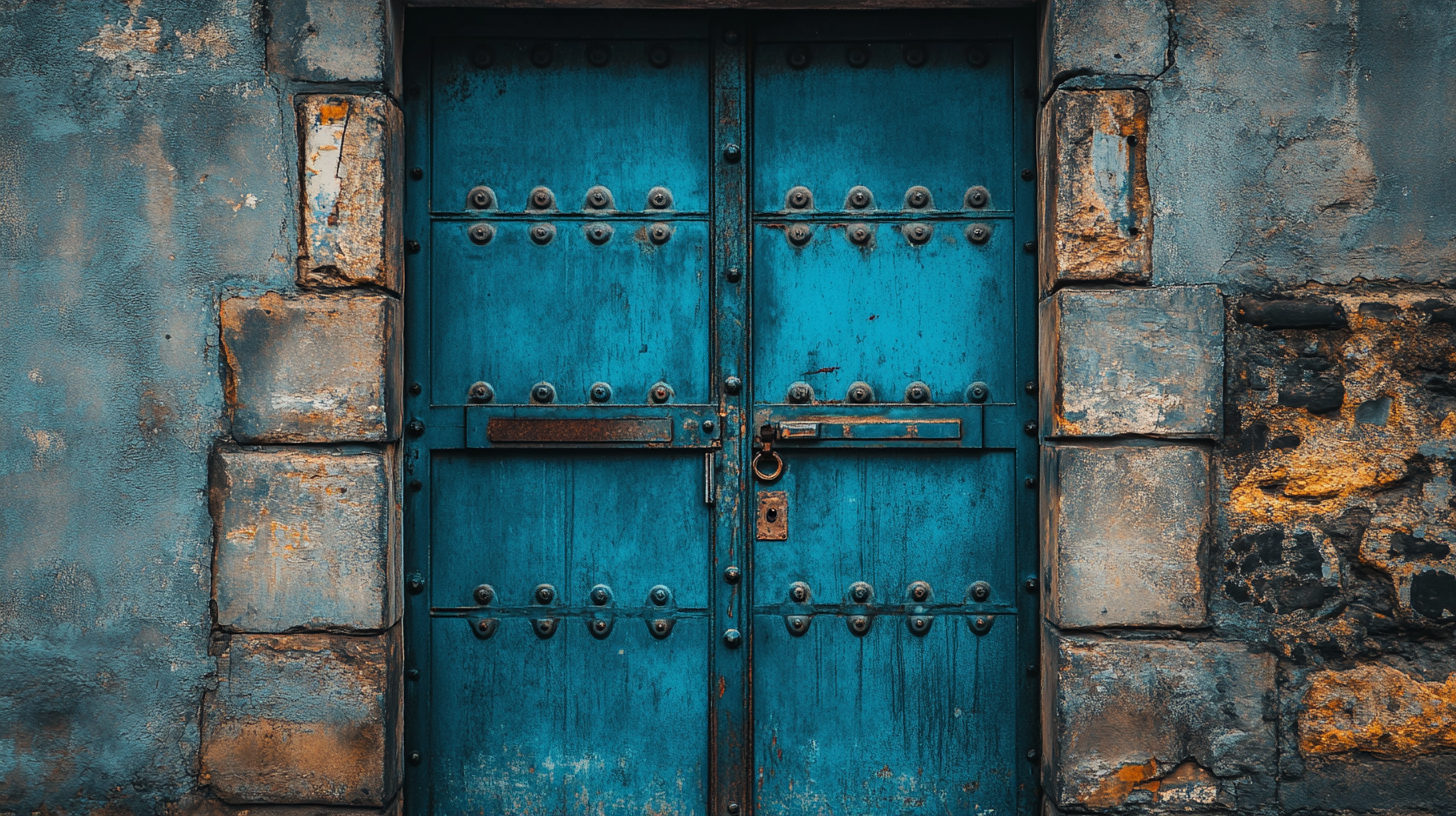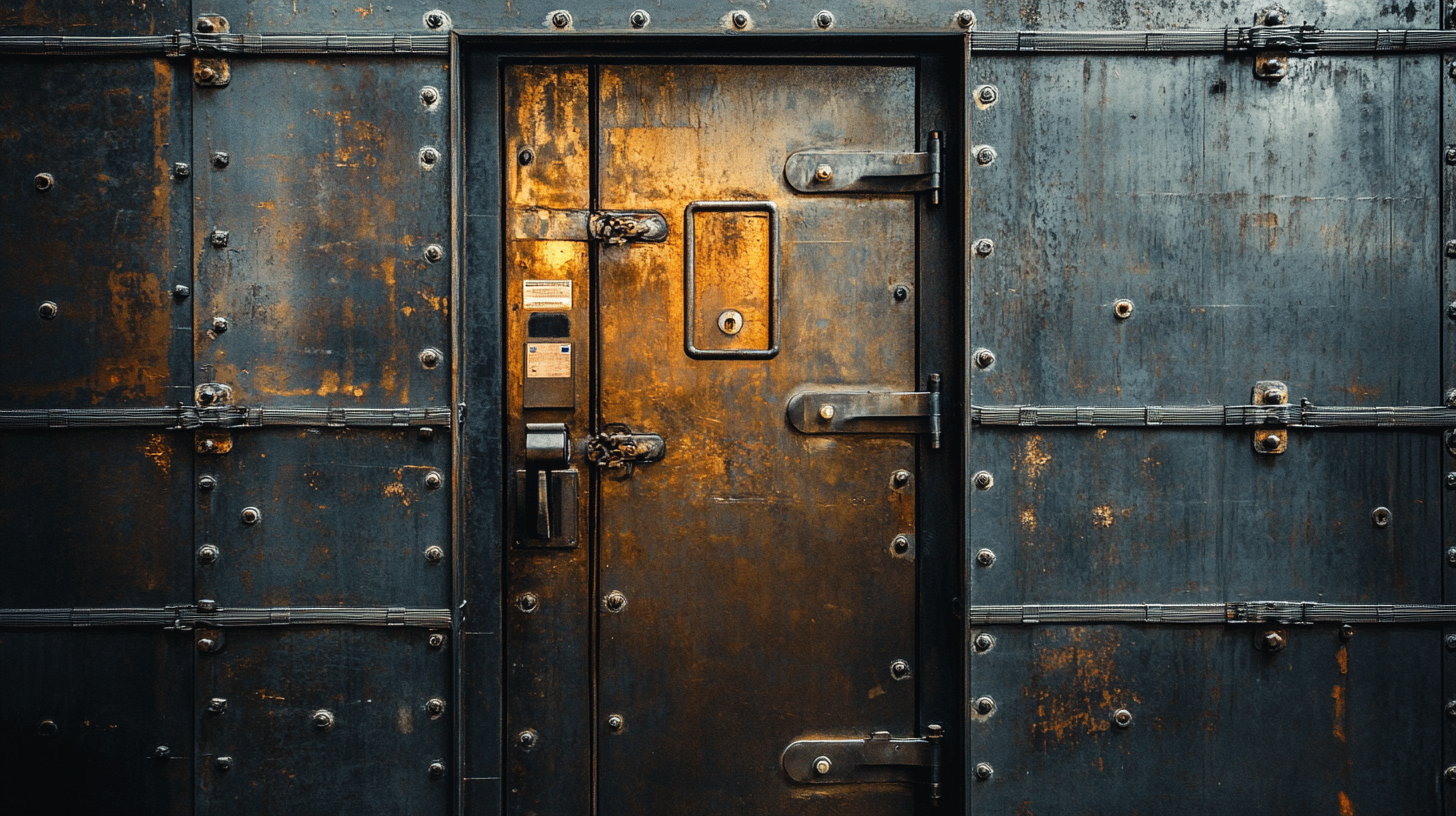- Call Us 03 8353 2113
- Mail Us sale@laxmidoor.com
Blog
How to Choose the Best Security Doors for Your Business Needs
When it comes to protecting your business, the choice of security measures can significantly impact the safety of your assets and personnel. Recent reports indicate that businesses lose an estimated $4.2 billion annually to theft, underscoring the importance of implementing robust security solutions. Among various protective measures, investing in high-quality security doors for business stands out as a critical step in fortifying your premises against potential break-ins. These doors not only serve as physical barriers but also act as a deterrent to criminal activity, making them an essential component of any comprehensive security strategy.
Furthermore, a survey conducted by the Security Industry Association shows that 75% of businesses that upgrade their security measures experience a reduction in incidents of theft and vandalism. This statistic highlights the effectiveness of advanced security doors in safeguarding commercial properties. Choosing the best security doors for your business involves a careful assessment of your unique requirements, including the specific threats you face and the level of access control you wish to implement. By prioritizing the right security doors, you can enhance your business's overall security posture and protect what matters most.

Understanding Your Business Security Needs
When it comes to securing your business, understanding your specific security needs is paramount. Businesses vary greatly in their requirements; a retail store, for example, might prioritize protection against theft and vandalism, while an office space may focus more on safeguarding confidential information. Assessing your risks and vulnerabilities is the first step in determining the most suitable security doors for your establishment. Assess your property layout, entry points, and current security measures. Identify which areas of your business are most susceptible to intrusion and require robust protection. This comprehensive evaluation not only helps in choosing the right security doors but also informs your broader security strategy. Additionally, consider factors such as peak operating hours and the types of goods or information held within your premises; these will affect the level of security you need. Once you have a clear understanding of your security needs, you can explore various security door options, including material choices, locking mechanisms, and designs that align with your business aesthetics while offering maximum protection. Investing time in this analysis will ensure that you choose the best security doors that fit your unique business requirements, ultimately enhancing the safety of your employees and assets.

Types of Security Doors: A Comprehensive Overview
When it comes to safeguarding your business, choosing the right security door is paramount. Understanding the various types of security doors available can significantly enhance your property's safety. A comprehensive overview reveals that there are primarily four main types of security doors in the market today: steel doors, fiberglass doors, iron doors, and wooden doors.
Steel doors are renowned for their durability and resistance, making them a popular choice for commercial properties. According to a market analysis by IBISWorld, the steel door manufacturing industry in the U.S. generated approximately $1 billion in revenue in 2022, highlighting its widespread use among businesses prioritizing security. These doors offer a high level of protection against forced entry, and many come with reinforced frames and locking mechanisms that further enhance their security features.
Fiberglass doors, while less traditional, have gained traction due to their ability to resist warping and their lightweight nature. This door type is particularly useful for environments exposed to harsh weather conditions, as they maintain structural integrity over time. Reports from the Freedonia Group indicate that the demand for fiberglass doors is expected to increase by 4.9% annually through 2025, driven by their energy efficiency and strength.
Iron doors, often characterized by intricate designs and unbeatable sturdiness, are another prominent option. They not only provide enhanced security but also add to the aesthetic appeal of your business facade. A 2023 survey by the Security Industry Association found that 63% of businesses rated aesthetic value as a crucial factor in their security door selection process, indicating that functional beauty is becoming increasingly important. Lastly, wooden doors, despite being less secure than their metal counterparts, still hold value for businesses seeking a more traditional look. Manufacturers have started to develop reinforced wooden doors which offer better protection than standard wooden options, catering to a niche market within the business sector.
Each type of security door presents its own set of benefits and potential limitations, and understanding these differences is essential for making an informed decision tailored to your business needs.

Factors to Consider When Choosing Security Doors
When selecting security doors for your business, it's crucial to consider several key factors to ensure the safety and security of your premises. A report by the Security Industry Association indicated that nearly 80% of break-ins occur through doors, emphasizing the importance of choosing the right security door to deter intrusions. First and foremost, assess the material of the door. Steel and fiberglass doors are often recommended for their durability and resistance to forced entry. According to research by the National Institute of Standards and Technology, steel doors can withstand impacts up to five times stronger than wood doors, making them a superior choice for high-security environments.
Another important factor to consider is the door’s locking mechanisms. The Federal Bureau of Investigation highlights that 95% of burglars choose to enter through unlocked doors or windows, which underscores the need for robust locks. Opt for deadbolt locks and additional locking systems that offer keyless entry solutions, enhancing both security and convenience. Additionally, security doors should meet industry standards such as those established by Underwriters Laboratories, which classify doors based on their resistance to unauthorized access.
Lastly, the door’s installation should not be overlooked. Proper installation can significantly enhance the effectiveness of a security door. The American National Standards Institute reports that improperly installed doors can lead to a 30% increase in vulnerability to break-ins. Thus, hiring certified professionals for installation is essential to maximize the security benefits of your chosen door. By considering these factors, businesses can make informed decisions to safeguard their assets effectively.

Material Selection: Durability vs. Aesthetic Appeal
When it comes to selecting security doors for your business, the choice of materials is paramount. Durability and aesthetic appeal often stand at odds, yet finding the right balance is crucial for both security and brand representation. Reports from the Door & Hardware Institute indicate that steel doors, for example, offer exceptional resistance to forced entry, boasting a tensile strength of 70,000 psi compared to 50,000 psi for many wood doors. This strength ensures a significant barrier against break-ins, making steel a popular choice among businesses prioritizing security.
However, businesses must also consider the visual impact of their security doors. Aesthetics play a critical role in customer perceptions and can influence purchasing decisions. According to a study by the International Door Association, 72% of respondents indicated that the appearance of a business's exterior, including doors, contributes to their trust and comfort level. For this reason, many manufacturers now offer a variety of finishes and styles for steel doors that mimic the elegance of wood while still maintaining high security standards.
Combining durability with aesthetic appeal can lead to the selection of composite materials. These often integrate the strength of steel with the visual appeal of wood or fiberglass, providing an ideal solution for businesses that don’t want to compromise. As reported by the Steel Door Institute, composite materials can increase resistance to environmental factors and provide insulation, further enhancing their operational effectiveness while keeping a sleek appearance. Choosing the right material ultimately helps create a welcoming environment without sacrificing security.
Budgeting for Security Doors: Balancing Cost and Quality
When it comes to selecting security doors for your business, budgeting is a critical component that necessitates a careful balance between cost and quality. According to a recent industry report by the Security Industry Association, businesses can expect to allocate anywhere from 10% to 15% of their overall security budget to physical access control measures, including security doors. This highlights the importance of investing in robust solutions that not only enhance safety but also stand the test of time.
Opting for lower-cost security doors can result in various hidden costs, such as increased maintenance, higher insurance premiums, and potential theft losses. A study from the National Institute of Standards and Technology found that businesses that invest in higher-quality security solutions typically experience a reduction in burglary-related losses by up to 30%. Thus, when evaluating your budget, it’s vital to consider the long-term implications of your investment rather than just the upfront costs.
Moreover, assessing the quality of materials used in security doors is paramount. Doors made from solid steel or reinforced composites tend to offer superior durability and resistance to forced entry. As reported by the Home Security Research Institute, high-quality security doors that meet rigorous testing standards can significantly enhance a business's overall security posture. By carefully weighing the cost against the quality and potential return on investment, businesses can make informed decisions that protect their assets and ensure peace of mind.

